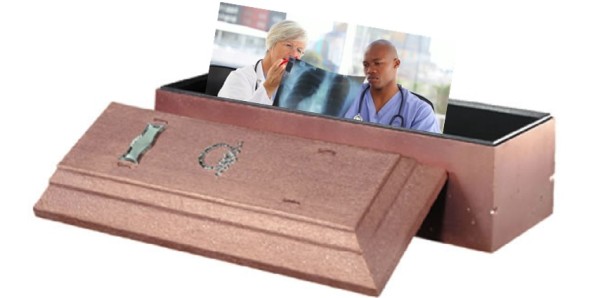
The hospital is a paradox. Even for a long stay, many relationships can be fleeting: Who is the phlebotomist today? What resident will be seeing me? Patients (and their families) may wonder these and other like questions. If the hospital experience has lasted months — with surgeries, ICU stays, complications, and medical twists and turns — the family will also have made more solid connections along the way. Like all relationships, these will have ranged in quality and meaning to the family. There may have been supportive — or fighting — interactions with ICU nurses; questions and challenges to residents and specialists; and one or a few bright spots along the way: that emotionally available student, nurse, social worker, or physician who swings by, welcome at any time. The family will have worked with and worked its way into this world. While no one person or interaction may determine the family’s experience, the sum total experience becomes a living system for the family.
When a death occurs in the loved one, the family will experience the death of the system, too. Gone is their loved one. And, with his or her last breath, gone is the family’s ticket past admitting, up the elevator and into the complex hospital world. There is not one loss but two. This presents a unique challenge for these families.
Especially when the death is unexpected or, in the family’s mind, attached to issues of care, the hospital relationships may feel less welcoming and more of a battleground in their fight to participate in their loved one’s care. What happens when these relationships end? If the family has become angry, who is there to hear the family’s anger? Even the broken relationships are important.
Families at times find a way to continue to participate within the health care system. Some families return to the provider for a discussion – an option I am quick to recommend. Others will take the discussion into the legal system.
But some families will request an autopsy. When a family calls to request an autopsy, that conversation is a chance for the family to tell their story, get heard, and process their experience. I may not be talking with the family in the ICU, but I can hear their words bouncing off IV pole, the heart monitor and the isolation mask; and know that I am being asked to step in to a doctor-patient relationship attached to a history.
Although my role with the family may seem to focus on the technical — autopsies are precise procedures — it is also a powerful emotional one. My conversations with the family become a “processing cushion” for the family to make the second loss (the loss of the hospital system) a bit more gradual and bit less of a sharp shock. This eases the way forward to what is not at all a paradox: that it’s time to grieve over the loss of the loved one.
